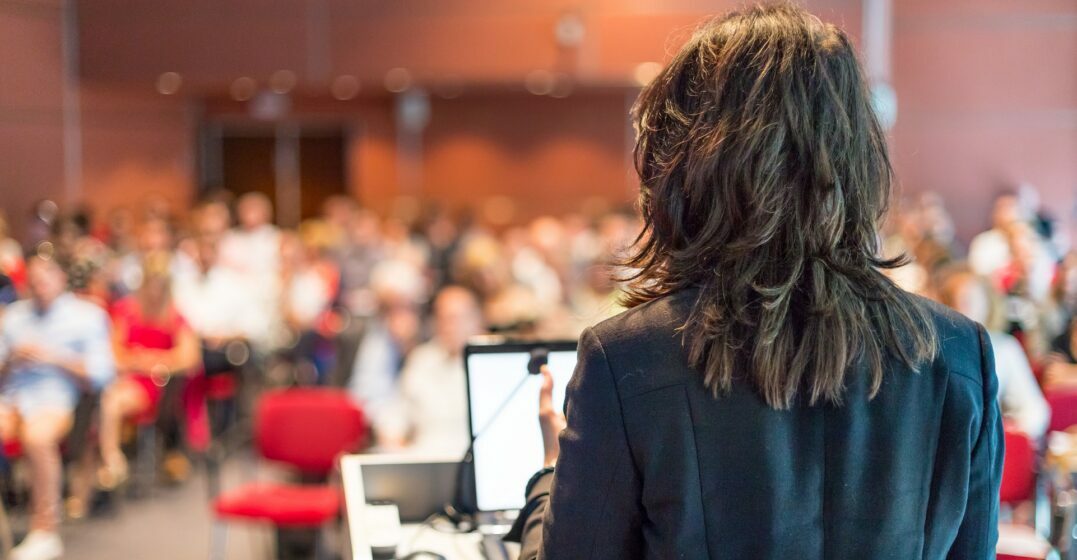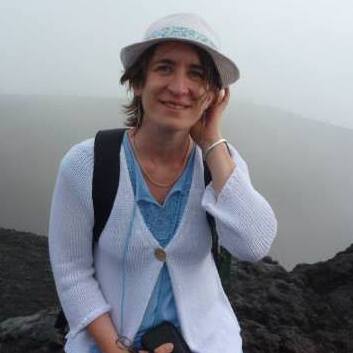8 French female politicians you need to know

From the women's right to vote finally granted in 1944 in France to the #MeToo movement, the last century has seen many positive changes in the roles played by women in society and in politics. So it’s hardly any surprise that the number of French female politicians has increased in the modern era. Nowadays, the principle of parité politique (political equity) is designed to ensure an equal number of men and women take on political roles, at all levels.
The following eight grandes dames are therefore only the tip of the iceberg, paving the way for more women to continue disrupting the status quo:
- Martine Aubry
- Édith Cresson
- Anne Hidalgo
- Eva Joly
- Christine Lagarde
- Ségolène Royal
- Christiane Taubira
- Simone Veil
Ready to start learning with Lingoda?
1. Martine Aubry
As the daughter of Jacques Delors, the President of the European Commission from 1985 to 1995, Martine Aubry grew up in politics. In her lifelong career, she was an appointed minister for a couple of socialist governments in the 1990s. While being the Minister of Employment and Solidarity from 1997 to 2000, she famously implemented the 35-hour week, which is also sometimes referred to as la loi Aubry (Aubry’s law). She has been the mayor of Lille, in the north of France, since 2001.
2. Édith Cresson
As the first woman in French history to become Prime Minister, Édith Cresson broke an important glass ceiling in French politics. François Mitterrand chose her for the position in 1992, after she had held other ministerial roles for him throughout the 1980s. Unfortunately, she stayed Prime Minister just short of one year and it took another 30 years for another woman to hold that same office, with Élisabeth Borne being appointed to the role in May 2022.
3. Anne Hidalgo
Another member of the Parti socialiste like Martine Aubry and Édith Cresson, Anne Hidalgo is the first woman to become the mayor of Paris, after being elected in 2014 and again in 2020. The role is of significant importance in French politics, with other alumni including Jacques Chirac. Indeed, this allowed Anne Hidalgo to gain enough prominence to present her candidacy to the French presidential elections in 2022.
4. Eva Joly
Eva Joly first gained fame as a lawyer involved in some high-profile cases in France. Indeed, she has never left the profession, even though she has also dabbed in politics both in France and in Europe. She was a Member of the European Parliament from 2009 to 2019, and a candidate for the green party Europe Écologie Les Verts (Europe Ecology – The Greens) during the French presidential elections in 2012.
5. Christine Lagarde
Reading Christine Lagarde’s resumé does feel a bit like reading a female version of the Guinness World Records. As a business lawyer, she spent about 25 years working for the American law firm Baker McKenzie, where, in October 1999, she became the first woman and the first non-American person to be elected chairman. She then took on several ministerial roles under the presidencies of Jacques Chirac and of Nicolas Sarkozy. In particular, she broke another record by being the first woman in a G8 country to be appointed ministre de l’Économie from 2007 to 2011. She topped this by becoming the first woman to head the International Monetary Fund from 2011 to 2019 and the European Central Bank from 2019.
6. Ségolène Royal
A leading figure of the socialist party and François Hollande’s partner from 1978 to 2007, Ségolène Royal is one of the handful of women who managed to reach the second round of the French presidential elections. In 2007, she campaigned against Nicolas Sarkozy, who eventually won the elections. Had the result been different, she would have become the first female president in French history.
7. Christiane Taubira
While being another left-wing politician on our list, Christiane Taubira cuts quite a unique figure in the French political landscape. She started her political career in French Guiana, where she was born in 1952 and a Member of Parliament from 1993 to 2012. She became the garde des Sceaux (Keeper of the Seals), i.e. the Minister of Justice, from 2012 to 2016. Furthermore, she is most famous for advocating le mariage pour tous (marriage for all), which led to the legalization of same-sex marriages in France in 2013. She is also the author of several French books devoted to political and social matters, including the questions of racism and slavery.
8. Simone Veil
No matter which French political parties you may have affinities with, Simone Veil is one of those politicians that foster respect and admiration across the board. She was born Simone Jacob in 1927 from a Jewish family settled in Nice. Under the French occupation during World War II, the family stayed in Nice, which was located in the so-called zone libre (free zone) administered by the Vichy government. On March 30, 1944, the day after she passed her baccalauréat, Simone was arrested by the German army. In April 1944, while Charles de Gaulles was busy granting women the right to vote in France, Simone Veil, then just 16, was deported to the Auschwitz concentration camp with her family. Only she and her two sisters survived the camps.
Upon her return to France, Simone Veil got back to university to study law before passing an exam to become a public officer. She slowly but surely entered the world of politics. While belonging to the traditional center-right parties, Simone Veil often surprised others with some of her more liberal views on social matters, such as when she defended the student protests of May 1968. From 1974 to 1979, she took on the role of Health Minister of France. It is during this time that she advocated for the right to abortion. In spite of the insults and threats thrown at her at the time, the law which still bears her name (la loi Veil) was eventually passed in 1974.
Her career continued in the following decades. She joined the European Parliament from 1979 to 1993 and was ministre des Affaires Sociales, de la Santé et de la Ville (minister for Social Matters, Health and Cities) from 1993 to 1995. She became a member of the Conseil constitutionnel (Constitutional Council) from 1998 to 2007 and of the Académie française (French Academy) in 2008. Following her death in 2017, she became the fifth woman and the only female politician in French history to have the honor of being buried in the Panthéon in Paris.
The women’s way in recent French history
Looking at this list of famous French female politicians in recent history, it is quite clear that none of them waited for the #MeToo movement to reach France to forge a career for themselves, leading the way to some radical changes and breaking a few glass ceilings along the way.













